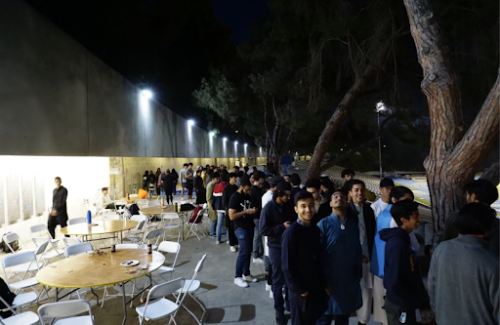

By Sarah Mohareb
LOS ANGELES —What should student-run organizations at UCLA do when they feel underprepared or even incapable of utilizing their own campus’s resources? As spring quarter progresses, we are seeing all kinds of events held by an array of student clubs. From the Association for Chinese Americans’ 34th annual cultural night to the Muslim Student Association’s annual end-of-the-year banquet to the dozens of other clubs holding countless types of successful events, one might question what the internal process is like to pull off such complex festivities.
Holding an event on UCLA’s campus as a student-led organization means working with the Associated Students UCLA (ASUCLA) to find a room, work the finances and make sure all proper permissions and paperwork are completed to ensure the event runs smoothly and abides by any rules. But the problem that so many students face is that they are never suitably taught the differences in paperwork, the extent of the expectations they are held to or given proper transparency on the financial situations regarding the rooms they rent.
Graduating fourth-year, Manal Ahmed, is currently sitting president of the Pakistani Student Association (PSA) on campus, and when asked about the process of holding large-scale events such as the PSA banquet, she discussed the obstacles she and her fellow board members faced.
“The room we had booked cost around $200 and we weren’t aware of this until two days prior,” Ahmed responds.

She adds the struggle PSA faced financially because of the previous year’s debt. Ahmed entered her position unaware of the carry-over and because of this, the PSA owes ASUCLA more money than she had knowledge of. The lack of communication and transparency forced her organization to look for other means of holding their end-of-the-year banquet as they were in too much debt with ASUCLA.
Furthermore, the variety of paperwork that goes into requesting financial help can be incredibly daunting and only adds more confusion to the already clouded process of working out the logistics of holding an event.
Ahmed recollects visiting the office of Student Organizations, Leadership & Engagement (SOLE) to request guidance on how to handle impediments her organization kept facing.
“I would go to the SOLE office and they would direct me towards this page or [say] email this person, which is less helpful considering I’m at your office” Ahmed responds.
Eventually, the PSA was able to hold their event and Ahmed was able to find all the information she needed but she does believe the process could have been simplified if, “they held workshops for incoming officers to understand what each form meant, what different funding techniques were, and how the overall internal process should go.”
An example of this can be found in one of ASUCLA’s subgroups, Student Media, which holds required training for all their incoming participants. This just ensures that every student understands what’s expected of them and how to handle situations a bit more effectively.
UCLA offers a plethora of resources and even has the SOLE office to advise student organizations through services such as “registration of new and continuing organizations, organization & leadership development, fundraising approval and guidelines, funding proposal consultation, and advisement on rules and regulations” according to the SOLE website.
The issue is not a lack of resources but inaccessibility to these resources because they aren’t made known to the students. ASUCLA can better support their student-led organizations by training them more intensively and better preparing them to handle the types of problems they will naturally run into as a club rather than having students feeling stranded when they hit a wall, or even needing to face repercussions for complications that could’ve been avoided.
There is enough of a learning curve having to navigate the intricacies of running a club, going through the processes of fundraising, event planning, marketing and so much more. Things like misfiled paperwork or lack of communication regarding a club’s debt should not be the types of issues that ultimately discourage students or force their events to go under.
As always, the passion that students have for their organization and ASUCLA’s mission to assist their student body does not go unnoticed, but an improvement in training, internal communication and clarifying the types of processes that go into running an organization are necessary for the betterment of each and every student-run club and its success.






